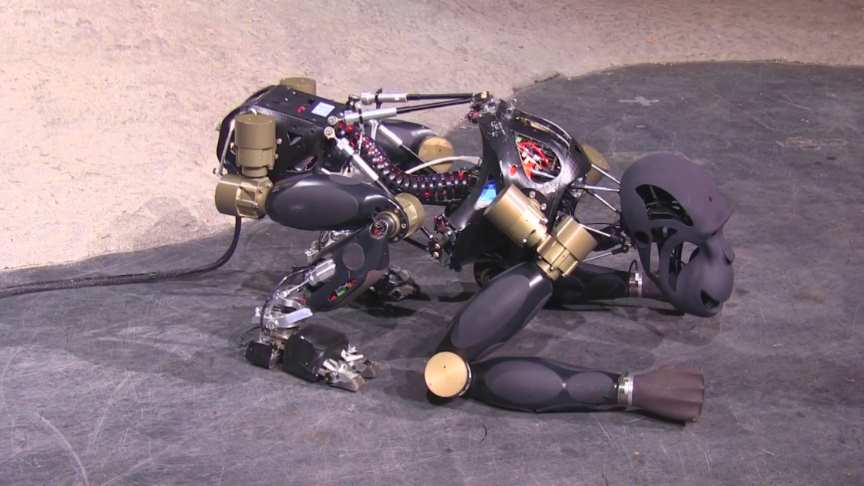Advertisemen
The video shows a self-righting behavior of the four-legged walking robot Charlie, developed by the Robotics Innovation Center (RIC) of the DFKI.
source/image: DFKI
The behavior consists of two parts: 1. A transition from a supine lying pose to a prone lying pose and 2. subsequently the transition to a standing posture.
Where the 6DoF artificial spine of Charlie was key to reach the stable four-legged pose.The first transition has been optimized using state-of-the-art machine learning algorithms.
Advertisement
The robot first moves from supine position to prone pose. It transitions to standing posture and relies on its 6DOF artificial spine to reach the 4-legged pose.
Advertisement











